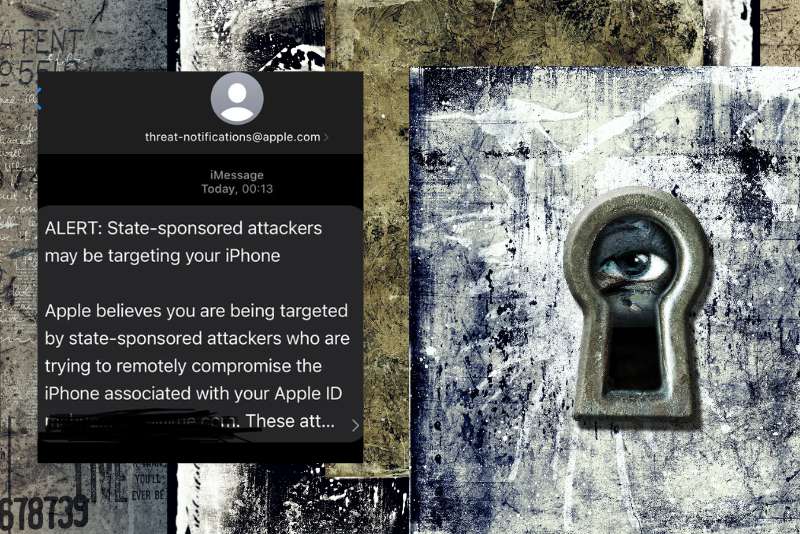
Apple Spyware Alert India
New Delhi: On Monday night, approximately two dozen individuals in India received notifications from Apple, cautioning them about being targeted by state-sponsored attackers attempting to compromise their iPhones associated with their Apple ID. The Big Tech refrained from specifying the government or agency involved and did not describe the nature of the compromise. However, the warning was explicit about the potential consequences, stating, “If your device is compromised by a state-sponsored attacker, they may be able to remotely access your sensitive data, communications, or even the camera and microphone.” For those who experienced the Israeli spyware Pegasus in the past, this alert was a chilling reminder of government surveillance.
A Resurgence of Pegasus or a New Threat?
The suspicion looms – is Pegasus making a comeback? Or is some other spyware, such as Predator, involved? As of now, the details remain unclear.
Spyware is a global industry with many countries creating an environment conducive to using surveillance for political purposes.
A Parallel with Pegasus?
In 2021, The Wire, as a part of the Pegasus Project, uncovered thousands of individuals across numerous countries who had been targeted by unidentified government clients of the Israeli spyware manufacturer NSO. In India, The Wire identified more than 140 likely Pegasus targets. It became evident that the Indian government was behind these attacks.
Confirmed Recipients of Apple’s Compromise Alerts
Here are the list of top leaders/journalists notified by Apple regarding iPhone compromise attempts:
- Samir Saran (president, Observer Research Foundation)
- Revathi (independent journalist)
- Priyanka Chaturvedi (Shiv Sena UBT MP)
- Shashi Tharoor (Congress MP)
- Supriya Shrinate (Congress spokesperson)
- Raghav Chadha (AAP MP)
- Revanth Reddy (Congress MP)
- T.S. Singhdeo (Chhattisgarh deputy CM and Congress leader)
- Anand Mangnale (regional editor, South Asia, OCCRP)
- Sriram Karri (resident editor, Deccan Chronicle)
- Multiple people who work in Congress MP Rahul Gandhi’s office
- Mahua Moitra (Trinamool Congress MP)
- K.C. Venugopal (Congress MP)
- Pawan Khera (Congress spokesperson)
- Sitaram Yechury (CPI(M) general secretary and former MP)
- K.T. Rama Rao (Telangana minister and BRS leader)
- Ravi Nair (journalist, OCCRP)
- Akhilesh Yadav (Samajwadi Party president)
- Asaduddin Owaisi (AIMIM MP)
- Siddharth Varadarajan (founding editor, The Wire)
Are the “State-Sponsored Attackers” Indian?
Apple issued a statement clarifying that they do not attribute the threat notifications to any specific state-sponsored attacker. Since introducing the threat notification feature in 2021, Apple has issued similar alerts to individuals in 150 countries. This suggests that multiple governments have attempted attacks over time, with no state attribution.
It is likely that the Indian government had a role in negotiations regarding the contents of Apple’s clarification.
The Significance of Apple’s “False Alarm” Statement
Some media outlets played up the “false alarm” aspect without considering the broader context. Apple’s statement notes that state-sponsored attackers are well-funded and sophisticated, and their attacks evolve over time. Detecting such attacks can be challenging, leading to potential false alarms. The emphasis, however, remains on taking the warning seriously.
Did Apple Assist the Modi Government’s Damage Control?
The opposition pointed fingers at the Modi government after receiving the Apple alerts. The government’s initial response was to suggest that the alerts were sent in error. Apple’s India team released a clarification that refrained from identifying the attacker but highlighted that such notifications were not limited to India.
Apple’s “Vague” Warnings
The IT minister dismissed the alerts as “vague” due to the lack of specifics. However, this isn’t the first time Indian phone users have been alerted to potential spyware attacks. WhatsApp had previously issued alerts, and The Wire’s analysis of the leaked Pegasus database revealed similar numbers.
What Happens Next?
While Apple may have notified people in 150 countries about hacking attempts, the recent alerts specifically targeted Indian opposition politicians and journalists. The key question remains: who are the attackers? The Indian government has promised an investigation and urged Apple to cooperate, while Apple is cautious about revealing more information. This situation mirrors the Pegasus controversy, with the government neither confirming nor denying its involvement.
Surveillance using spyware against political opponents not only violates individual privacy but also undermines the electoral process. In India, the consequences of such actions remain in question.
Also Read: DDoS Attacks Surge Globally in 2022
Gangtokian Web Team, 01/11/23
















































